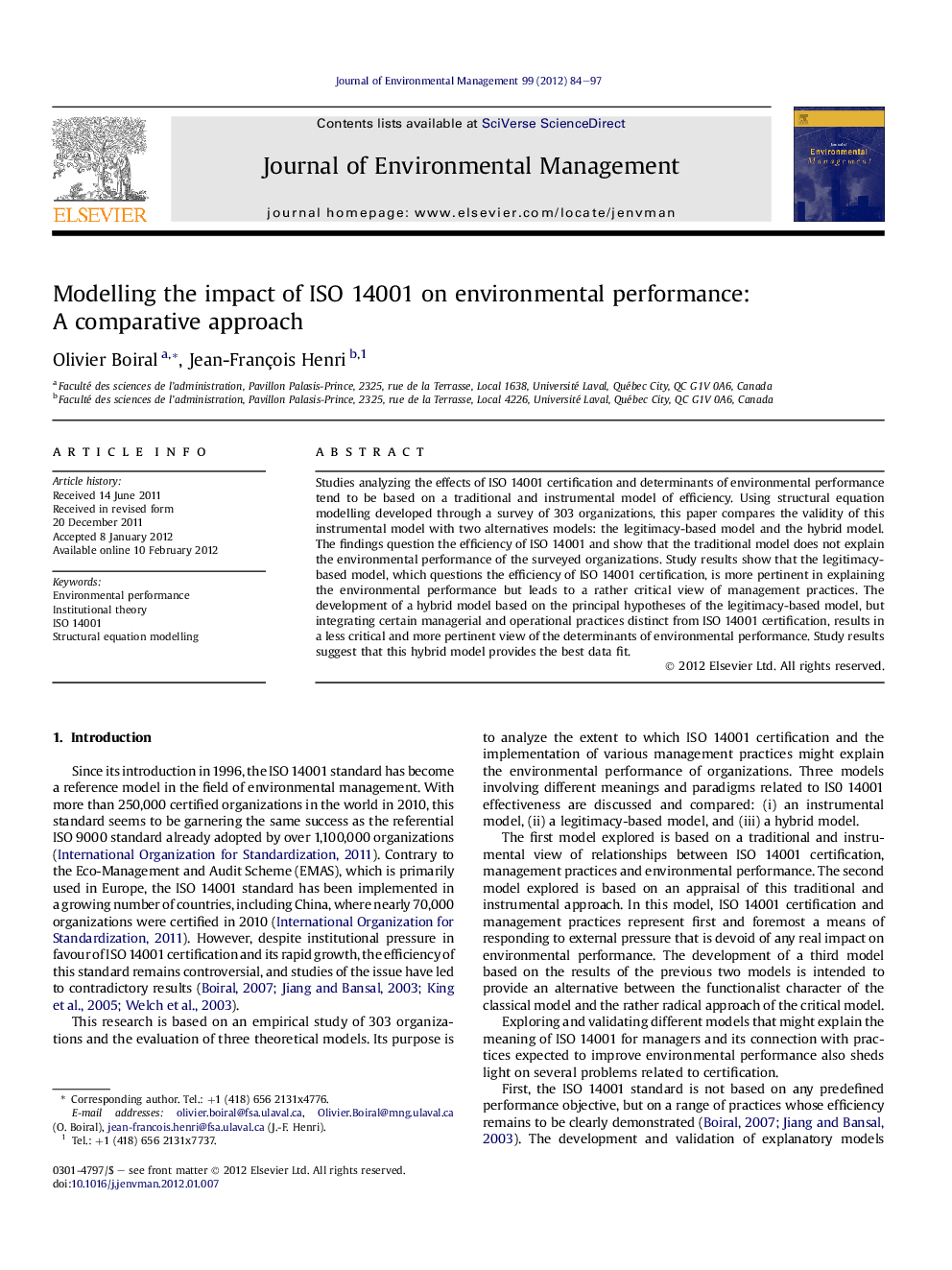| Article ID | Journal | Published Year | Pages | File Type |
|---|---|---|---|---|
| 1056907 | Journal of Environmental Management | 2012 | 14 Pages |
Studies analyzing the effects of ISO 14001 certification and determinants of environmental performance tend to be based on a traditional and instrumental model of efficiency. Using structural equation modelling developed through a survey of 303 organizations, this paper compares the validity of this instrumental model with two alternatives models: the legitimacy-based model and the hybrid model. The findings question the efficiency of ISO 14001 and show that the traditional model does not explain the environmental performance of the surveyed organizations. Study results show that the legitimacy-based model, which questions the efficiency of ISO 14001 certification, is more pertinent in explaining the environmental performance but leads to a rather critical view of management practices. The development of a hybrid model based on the principal hypotheses of the legitimacy-based model, but integrating certain managerial and operational practices distinct from ISO 14001 certification, results in a less critical and more pertinent view of the determinants of environmental performance. Study results suggest that this hybrid model provides the best data fit.
► We compare 3 models on the efficiency of ISO 14001 using structural equation method. ► The dominant instrumental model does not explain environmental performance. ► The legitimacy-based model provides a rather good data fit. ► The alternative hybrid model provides the best data fit. ► We explore the most efficient practices to improve environmental performance.
